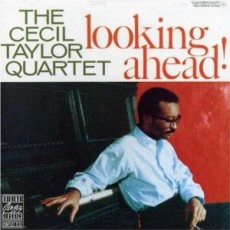
Daily Dose Of Jazz…
Charles Mingus Jr. was born on April 22, 1922 in Nogales, Arizona of Chinese, English, African and Swedish heritage. His mother allowed only church-related music in their home, but Mingus developed an early love for jazz, especially the music of Duke Ellington. He first studied trombone, later adding cello, which prepared him for the double bass in high school. He studied five years with H. Rheinshagen, principal bassist of the New York Philharmonic and compositional techniques with Lloyd Reese.
Beginning in his teen years, Mingus was writing quite advanced pieces incorporating elements of classical music. A number of them were recorded in 1960 with conductor Gunther Schuller and released as “Pre-Bird”, referring to Charlie “Bird” Parker. Mingus was one of many musicians whose perspectives on music were altered by Parker into “pre- and post-Bird” eras.
Gaining a reputation as a bass prodigy, his first major professional job was playing with former Ellington clarinetist Barney Bigard. This followed by a tour with Louis Armstrong in 1943 that led to his recording in a band led by Russell Jacquet that included Teddy Edwards and Chico Hamilton. He went onto record with Howard McGhee and into the late ‘40s played with Lionel Hampton’s band performing several of his pieces.
A popular Mingus trio had Red Norvo and Tal Farlow in tow in the early 50s with considerable acclaim but his mixed heritage caused problems with club owners and he left the group. Charles was briefly a member of Ellington’s band until his temper got him fired. He went on to record and play with Max Roach, Bud Powell, Dizzy Gillespie, Charlie Parker, Pepper Adams, Jaki Byard, Horace Parlan, Booker Ervin, John Handy, Charles McPherson, Eric Dolphy and Johnny Coles among others through the Sixties and into the next decade. By the mid-1970s, Mingus was suffering from Lou Gehrig’s disease that eventually stopped his playing, leaving him to continue composing and supervising recordings prior to his death on January 5, 1979 at age 56 in Cuernavaca, Mexico.
Composer, bandleader, bassist and civil rights activist Charles Mingus left a legacy of an autobiography, Mingus Big Band, Mingus Dynasty, Mingus Orchestra, the Charles Mingus High School Competition, the catalogue of Mingus compositions in the Music Division of the New York Public Library and the collected papers of Charles Mingus housed at the Library of Congress in Washington, DC.
More Posts: bandleader,bass,composer

Daily Dose Of Jazz…
Horace Tapscott was born Horace Elva Tapscott in Houston, Texas, the son of a jazz musician mother on April 6, 1934. When he turned nine his family moved first to Fresno, California, eventually settling in Los Angeles. Reaching maturity at a critical time in the history of L.A. jazz, he was privy to the like of Dexter Gordon, Art Tatum and Coleman Hawkins who were playing the Central Avenue clubs in the late ‘40s.
In 1961 Horace formed the Pan Afrikan Peoples Arkestra, also known as P.A.P.A., or The Ark in 1961 and led the ensemble that included at one time or another Arthur Blythe, Stanley Crouch, Butch Morris, Wilbur Morris, David Murray and Jimmy Woods through the 1990s. In 1968 he composed and arranged saxophonist Sonny Criss’ critically acclaimed “The Birth of the New Cool”. He followed this with a decade long performance of his own works, a succession of recordings for the Nimbus label and a growing reputation and flourishing creativity that eventually leading to the recognition he deserved.
His powerful and percussive approach to playing coupled with a highly individual bop-tinged style with avant-garde leanings became somewhat of an inspiration to a new generation of L.A. based free jazz players. Horace Tapscott and his work are the subjects of the UCLA Horace Tapscott Jazz Collection. The composer and pianist passed away of lung cancer on February 27, 1999 in Los Angeles, California.
More Posts: piano

Daily Dose Of Jazz…
Larry Coryell was born April 2, 1943 in Galveston, Texas moved to Washington as a child. After graduating from Richland High School in eastern Washington, he moved to Seattle to attend the University of Washington.
In 1965, Coryell moved to New York City where he became part of Chico Hamilton’s quintet replacing Gabor Szabo. In the Sixties he recorded with Gary Burton, played with The Free Spirits and extended his musical landscape to include influences of rock, jazz and eastern music.
He formed his own group, “The Eleventh House” in 1973 and following the break-up of this band, Coryell played mainly acoustic guitar but returned to electric guitar later in the 1980s.
In 1979, Coryell formed “The Guitar Trio” with jazz-fusion guitarist John McLaughlin and flamenco guitarist Paco de Lucia. The group toured Europe, released “Meeting of Spirits” recorded at Royal Albert Hall in London, however, his drug addiction led to his being replaced by Al Di Meola.
By the turn of the century he settled back into a more mainstream style of playing releasing “Cedars of Avalon”, “Monk, Trane, Miles & Me”, “Tricycles”, and “Power Trio: Live In Chicago”. In 2007, Coryell published an autobiography titled “Improvising: My Life in Music”. Guitarist Larry Coryell remains active in the music industry performing, touring and recording.
More Posts: guitar

Daily Dose Of Jazz…
Cecil Percival Taylor was born March 25, 1929 in New York City and began playing piano and classical training at age six. He studied at the New York College of Music and New England Conservatory. After first steps in R&B and swing-styled small groups in the early 1950s, he formed his own band with soprano saxophonist Steve Lacy in 1956, in which he release his first recording Jazz Advance.
Throughout the 1950s and 1960s, Taylor’s music grew more complex and moved away from existing jazz styles. Gigs were often hard to come by, and club owners found Taylor’s approach to performance (long pieces) unhelpful in conducting business. Forming his group The Unit in 1961 with Jimmy Lyons, Sunny Murray and later Andrew Cyrille produced landmark recordings, like “Unit Structures” in 1966, they continued to record although sporadically and many of his recording sessions remained unreleased for sometimes decades.
By the 70s he was performing solo concerts and Taylor’s work began to be released for the next two decades, garnering critical if not popular acclaim. He began lecturing at universities, was awarded the Guggenheim Fellowship, performed a White House lawn concert for President Jimmy Carter, was awarded a MacArthur Fellowship, returned to the trio setting, collaborated with ballet companies and as an accomplished poet often incorporates his poems into his musical performances.
He is the co-founder of the Jazz Composers Guild to enhance the working possibilities of avant-garde musicians. Acknowledged as one of the pioneers of free jazz, his music is characterized by an extremely energetic, physical approach, producing complex improvised sounds, frequently involving tone clusters and intricate polyrhythms. His piano technique has been likened to percussion, described as “eighty-eight tuned drums” referring to the number of keys on a standard piano. He continues to perform, compose and record.
More Posts: bandleader,composer,piano,poet

Daily Dose Of Jazz…
Michele Rosewoman was born on March 19, 1953 in Oakland, California. She began playing the piano at age six and as a teenager studied with organist/pianist Ed Kelly. After extensive work locally leading several jazz groups she also played with Baikida Carroll, Julius Hemphill and Julian Priester. In 1977 Michele moved to New York where she involved herself in the avant-garde scene playing and recording as a sidewoman with Oliver Lake, Billy Bang, Greg Osby, Ralph Peterson and the members of M Base among others.
Rosewoman is most notable for her work and recordings with her Quintessence ensemble as well as several trio and quartet sessions. Steeped in Cuban percussion and African music and since the early 80s for her Afro Cuban jazz big band “New Yor-Uba Ensemble” featuring Orlando “Puntilla” Rios.
Michele has played with such jazz masters as Freddie Waits, Rufus Reid, Billy Hart, Reggie Workman and Latin music greats such as Celia Cruz, Chocalate, Nicky Marrero, Paquito D’Rivera, and Daniel Ponce among others. She continues to perform and record around the world.
More Posts: piano


